Related Research Articles

Edward Osborne WilsonForMemRS was an American biologist, naturalist, ecologist, and entomologist known for developing the field of sociobiology.
The Discovery Institute (DI) is a politically conservative think tank, that advocates the pseudoscientific concept of intelligent design (ID). It was founded in 1991 in Seattle as a non-profit offshoot of the Hudson Institute.

The Committee for Skeptical Inquiry (CSI), formerly known as the Committee for the Scientific Investigation of Claims of the Paranormal (CSICOP), is a program within the U.S. non-profit organization Center for Inquiry (CFI), which seeks to "promote scientific inquiry, critical investigation, and the use of reason in examining controversial and extraordinary claims." Paul Kurtz proposed the establishment of CSICOP in 1976 as an independent non-profit organization, to counter what he regarded as an uncritical acceptance of, and support for, paranormal claims by both the media and society in general. Its philosophical position is one of scientific skepticism. CSI's fellows have included notable scientists, Nobel laureates, philosophers, psychologists, educators, and authors. It is headquartered in Amherst, New York.
Science education is the teaching and learning of science to school children, college students, or adults within the general public. The field of science education includes work in science content, science process, some social science, and some teaching pedagogy. The standards for science education provide expectations for the development of understanding for students through the entire course of their K-12 education and beyond. The traditional subjects included in the standards are physical, life, earth, space, and human sciences.

Ufology is the investigation of unidentified flying objects (UFOs) by people who believe that they may be of extraordinary origins. While there are instances of government, private, and fringe science investigations of UFOs, ufology is generally regarded by skeptics and science educators as an example of pseudoscience.
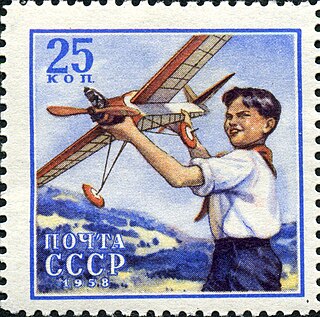
Children's Day is a commemorative date celebrated annually in honor of children, whose date of observance varies by country. In 1925, International Children's Day was first proclaimed in Geneva during the World Conference on Child Welfare. Since 1950, it is celebrated on June 1 in many countries. World Children's Day is celebrated on 20 November to commemorate the Declaration of the Rights of the Child by the UN General Assembly on 20 November 1959. In some countries, it is Children's Week and not Children's Day. The Sikhs celebrate Children Day on 20 December to 27 December. In the U.S., Children's Day is celebrated on the second Sunday of June.
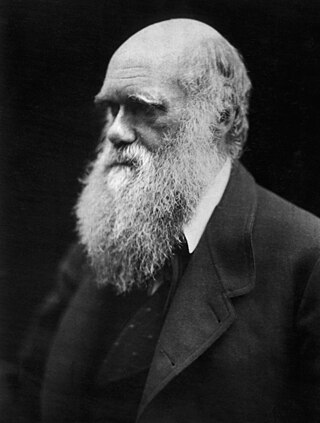
Darwin Day is a celebration to commemorate the birthday of Charles Darwin on 12 February 1809. The day is used to highlight Darwin's contributions to science and to promote science in general. Darwin Day is celebrated around the world.
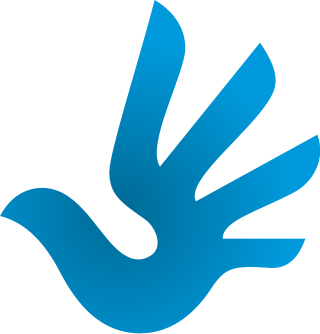
Human Rights Day is celebrated annually around the world on 10 December every year.
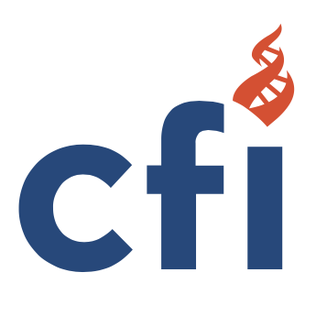
The Center for Inquiry (CFI) is a U.S. nonprofit organization that works to mitigate belief in pseudoscience and the paranormal and to fight the influence of religion in government.
Women's History Month is an annual declared month that highlights the contributions of women to events in history and contemporary society. It is celebrated during March in the United States, the United Kingdom, and Australia, corresponding with International Women's Day on March 8, and during October in Canada, corresponding with the celebration of Persons Day on October 18.

Paul Allan Offit is an American pediatrician specializing in infectious diseases, vaccines, immunology, and virology. He is the co-inventor of a rotavirus vaccine. Offit is the Maurice R. Hilleman Professor of Vaccinology, professor of pediatrics at the Perelman School of Medicine at the University of Pennsylvania, former chief of the Division of Infectious Diseases (1992–2014), and the director of the Vaccine Education Center at the Children's Hospital of Philadelphia.
Grandparents' Day or National Grandparents' Day is a secular holiday celebrated in various countries; it is celebrated to show the bond between grandparents and grandchildren. It occurs on various days of the year, either as one holiday or sometimes as a separate Grandmother's Day and Grandfather's Day.
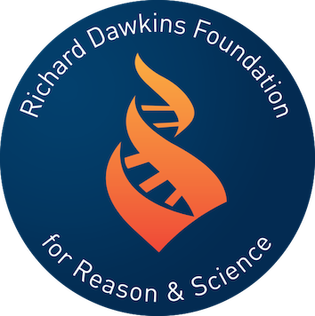
The Richard Dawkins Foundation for Reason and Science is a division of Center for Inquiry (CFI) founded by British biologist Richard Dawkins in 2006 to promote scientific literacy and secularism.

Thanksgiving is a national holiday celebrated on various dates in October and November in the United States, Canada, Grenada, Saint Lucia, Liberia, and unofficially in countries like Brazil, Germany and the Philippines. It is also observed in the Dutch town of Leiden and the Australian territory of Norfolk Island. It began as a day of giving thanks for the blessings of the harvest and of the preceding year. Various similarly named harvest festival holidays occur throughout the world during autumn. Although Thanksgiving has historical roots in religious and cultural traditions, it has long been celebrated as a secular holiday as well.

Climate change denial is the pseudoscientific dismissal or unwarranted doubt that contradicts the scientific consensus on climate change. Those promoting denial commonly use rhetorical tactics to give the appearance of a scientific controversy where there is none. Climate change denial includes doubts to the extent of how much climate change is caused by humans, its effects on nature and human society, and the potential of adaptation to global warming by human actions. To a lesser extent, climate change denial can also be implicit when people accept the science but fail to reconcile it with their belief or action. Several social science studies have analyzed these positions as forms of denialism, pseudoscience, or propaganda.

Thomas W. Flynn was an American author, journalist, novelist, executive director of the Council for Secular Humanism, and editor of its journal Free Inquiry. He was also director of the Robert Green Ingersoll Birthplace Museum and the Freethought Trail.
Bertha Vazquez is director of education for the Center for Inquiry, director of the Teacher Institute for Evolutionary Science (TIES), a program of the Center for Inquiry and a project of the Richard Dawkins Foundation for Reason and Science, and a middle school science teacher at the George Washington Carver Middle School in the Miami-Dade County Public Schools. She also manages the educational aspects of Science Saves and Young Skeptics, two other CFI programs.
References
- ↑ "National Science Appreciation Day". Days of the Year. Archived from the original on 28 November 2023. Retrieved 28 November 2023.
- 1 2 "National Science Appreciation Day". ScienceSaves. Archived from the original on 12 October 2023. Retrieved 28 November 2023.
- ↑ Fidalgo, Paul (16 March 2022). "Ten States Plus D.C. Are First to Issue National Science Appreciation Day Proclamations". Center for Inquiry. Archived from the original on 28 November 2023. Retrieved 28 November 2023.
- ↑ Vazquez, Bertha (24 October 2023). "Setting aside a day to appreciate what science has done for us". Archived from the original on 29 October 2023. Retrieved 27 November 2023.